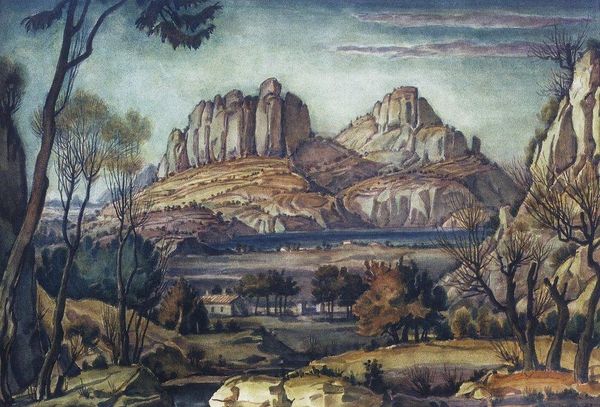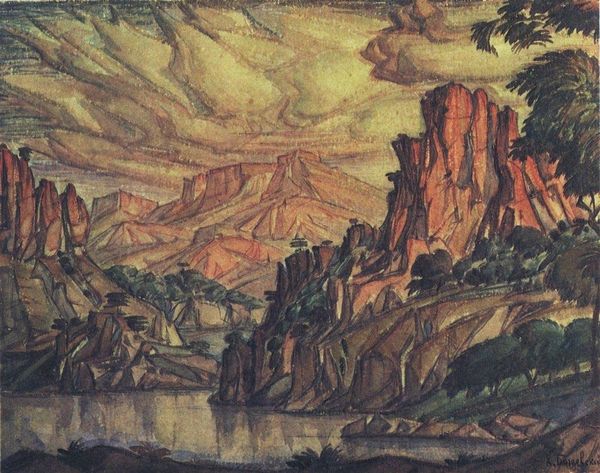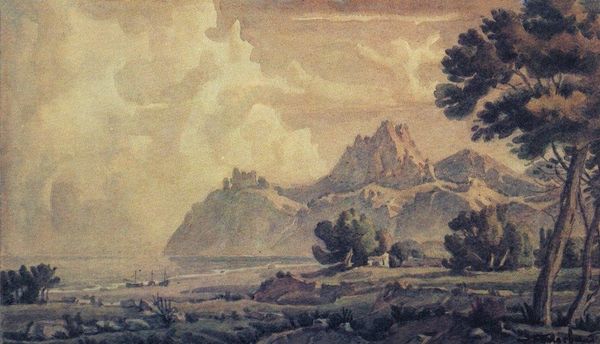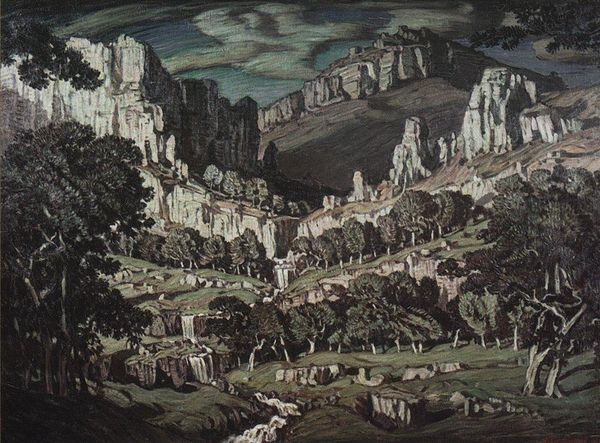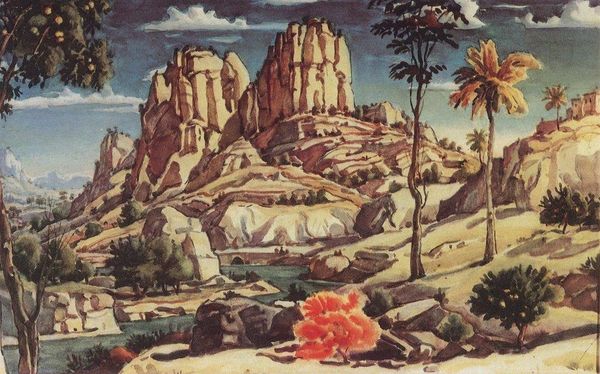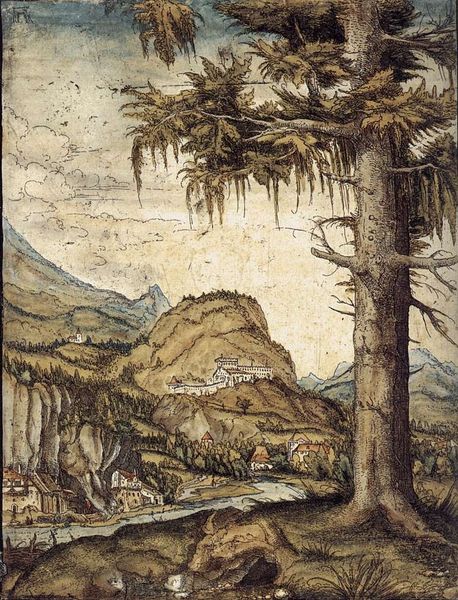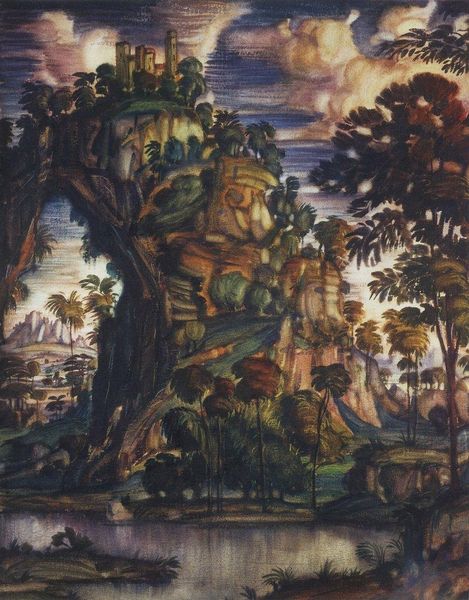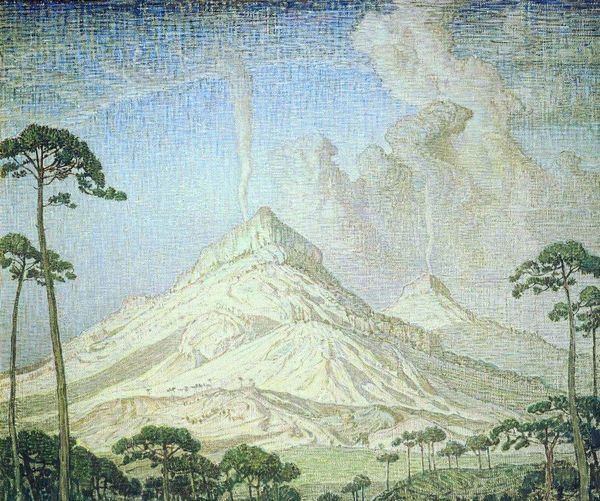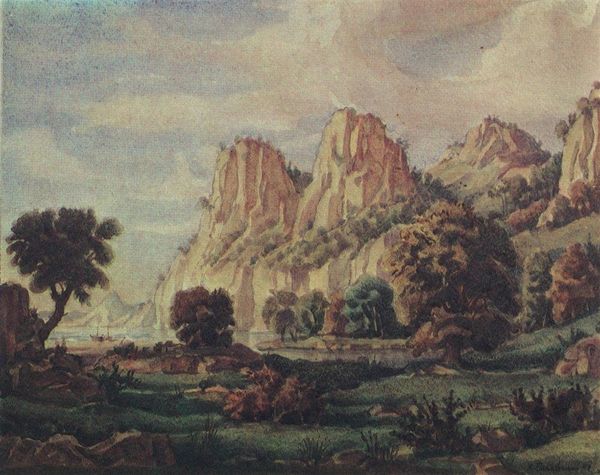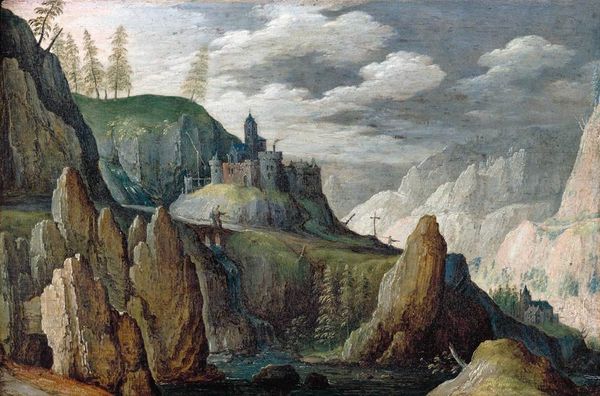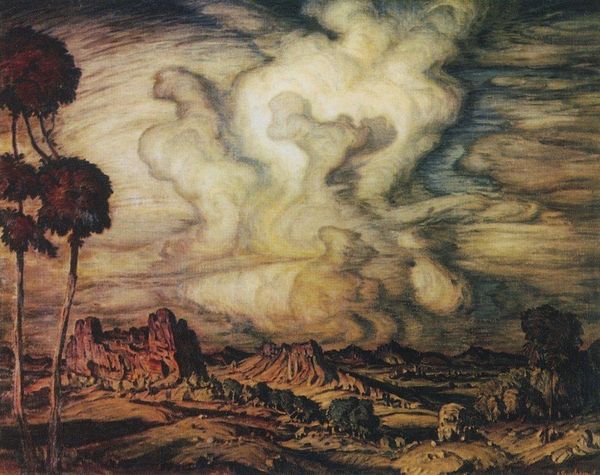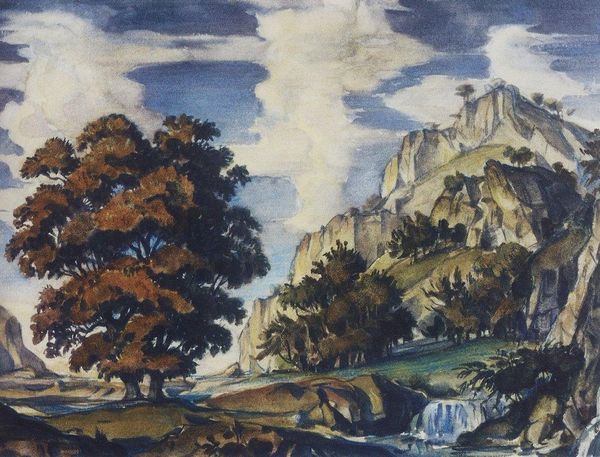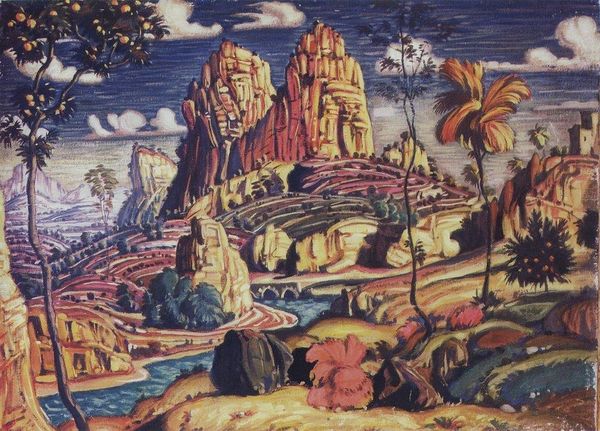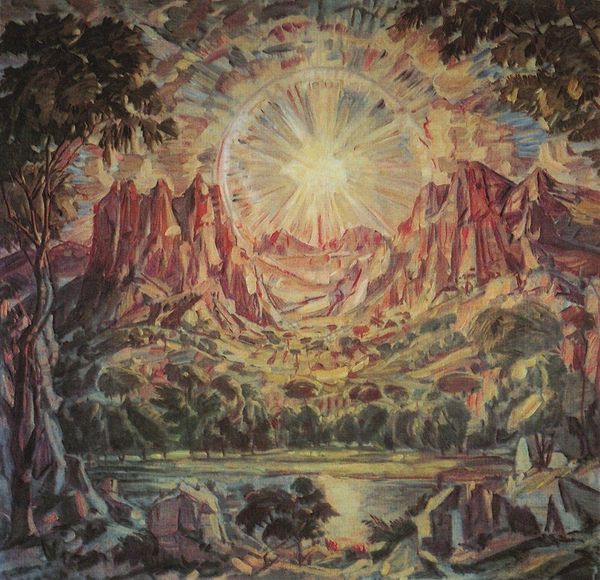
Dimensions: 142 x 120 cm
Copyright: Public domain
Editor: This is "Classical Landscape" by Konstantin Bogaevsky, painted around 1910, and appears to be done with tempera or oil paint. It’s such a strangely compelling vista. What strikes me most is its almost dreamlike quality. How do you interpret this work? Curator: I see a landscape deeply rooted in the symbolist tradition. Bogaevsky, working in a period of immense social and political upheaval in Russia, seems to be retreating into an imagined past, a romanticized classical world. It evokes questions about whose "classical" world is being represented here, and who has access to that history. Do you notice how the architectural elements are absent? Editor: Now that you mention it, it is odd for something named ‘Classical Landscape’ not to have ruins or temples... Curator: Precisely! Instead, we are presented with this untouched nature, seemingly pre-civilizational. What could this be saying about the artist's disillusionment with the contemporary world? Consider that this landscape could symbolize an idealized, even utopian space, perhaps one devoid of the social hierarchies and power struggles present in Bogaevsky's Russia. Editor: So it’s less about historical accuracy and more about…escape? Or even critique? Curator: Exactly! It's a loaded vision. Consider who historically could afford to retreat to these pastoral idylls, and at what cost to those excluded. Think about the artistic movements like Romanticism and how they intersect with notions of colonialism, ownership, and the idealization of nature at a time of aggressive industrialization and land use. Editor: That really makes me rethink my initial interpretation. It’s more complex than just a pretty picture! Curator: Indeed. And art like this asks us to interrogate the romanticized past and its continued impact on our present. Editor: This conversation made me consider art in its complex relation with the society. Curator: I agree. Thinking about art as a reflection of society enables one to see how deeply embedded politics is.
Comments
No comments
Be the first to comment and join the conversation on the ultimate creative platform.
